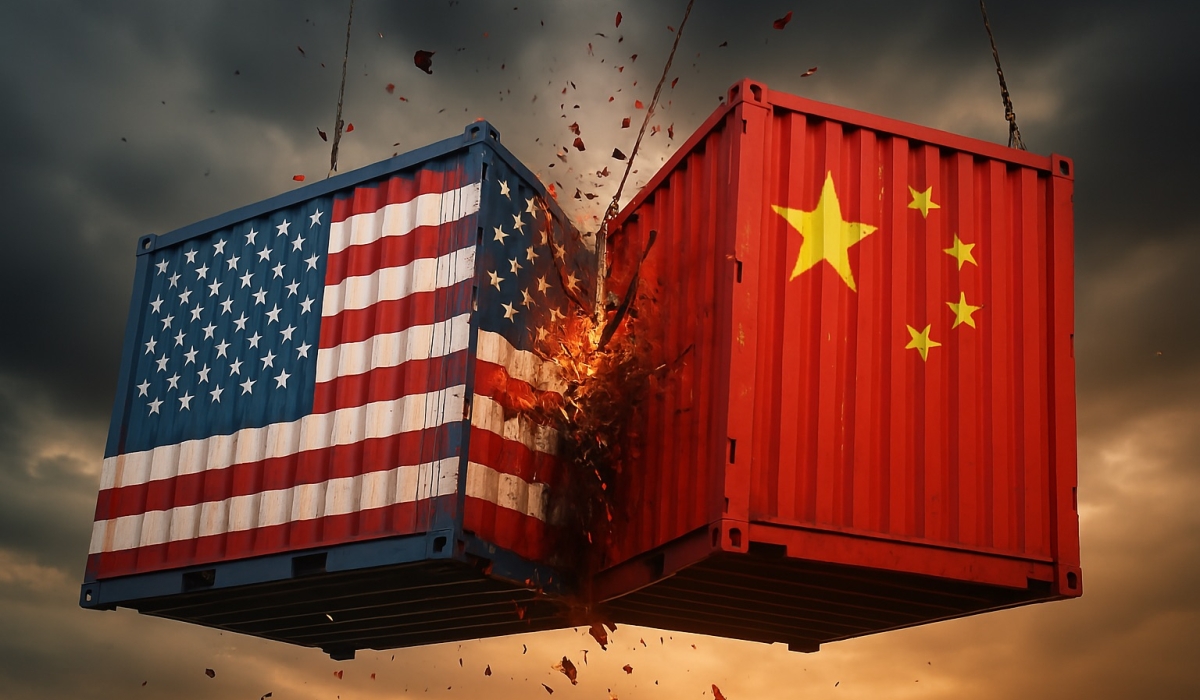
WTO head warns that US-China trade tensions will have global repercussions
Ngozi Okonjo-Iweala, the Director-General of the World Trade Organization (WTO), has issued a warning that the growing tariff tensions between the United States and China will have a macroeconomic impact that goes beyond the two biggest economies in the world.
She stated in a public address this week that “the negative macroeconomic effects will not be confined to the United States and China but will extend to other economies, especially the least developed nations.”
Okonjo-Iweala expressed alarm about the possible geopolitical fragmentation of international commerce, pointing out that a split into two blocs may result in a long-term decline of the world real gross domestic product (GDP) of around 7%.
“We urge all WTO members to address this challenge through cooperation and dialogue,” she added, adding that “trade diversion remains an immediate and pressing threat, one that requires a coordinated global response.”
There is a serious chance that bilateral trade would decline significantly as a result of the growing trade tensions between the US and China.
According to WTO preliminary estimates, there may be an 80 percent decline in merchandise trade between these two economies.
This tit-for-tat strategy between the two biggest countries in the world, whose bilateral commerce makes up around 3% of global trade, has broader ramifications that might seriously harm the outlook for the entire economy.
In light of recent events, Okonjo-Iweala stated, “Our assessments highlight the substantial risks associated with further escalation.”
Tensions are rising.
Due to an increase in trade barriers and limitations between nations, there have been indications of trade fragmentation, with trade increasingly being reoriented along geopolitical lines.
WTO economists estimated in 2023 that since Russia’s full-scale invasion of Ukraine in February 2022, trade flows between two hypothetical geopolitical blocs—based on the foreign policies of the countries as determined by voting patterns at the UN General Assembly—have grown 4-6 percent more slowly than trade within these blocs.
Additionally, they cautioned that if the globe is divided into two blocs, real income will eventually drop by 5% and for the poorest nations, the majority of which have profited tremendously from the system of international commerce, it will drop by 12%.
This would essentially mean that low-income households that spend a significant amount of their income on tradable goods and services would bear the brunt of higher prices brought on by trade barriers, while vulnerable workers in export-dependent industries would be the ones most affected by labor market disruptions.
In addition to growing divergence, nations have persisted in enforcing trade restrictions. WTO members alone imposed up to 96 export-related restrictions on food, feed, and fertilizer following the conflict in Ukraine, and 68 of those restrictions remain in effect, affecting commerce worth $85 billion.
The status quo could become more complicated as a result of the most recent tariff developments between the US and China.
WTO members voiced their concerns about these tariff increases just last month, denouncing President Donald Trump’s government for breaking their pledges and upsetting the equilibrium of concessions that members had agreed upon.
Okonjo-Iweala emphasized that members have the agency to defend the open, rules-based trade system and urged the international community to cooperate in order to maintain its openness.
“The WTO is an essential forum for discussion. It is crucial to resolve these problems in a collaborative manner,” she said.
All Categories
Recent Posts
Tags
+13162306000
zoneyetu@yahoo.com



